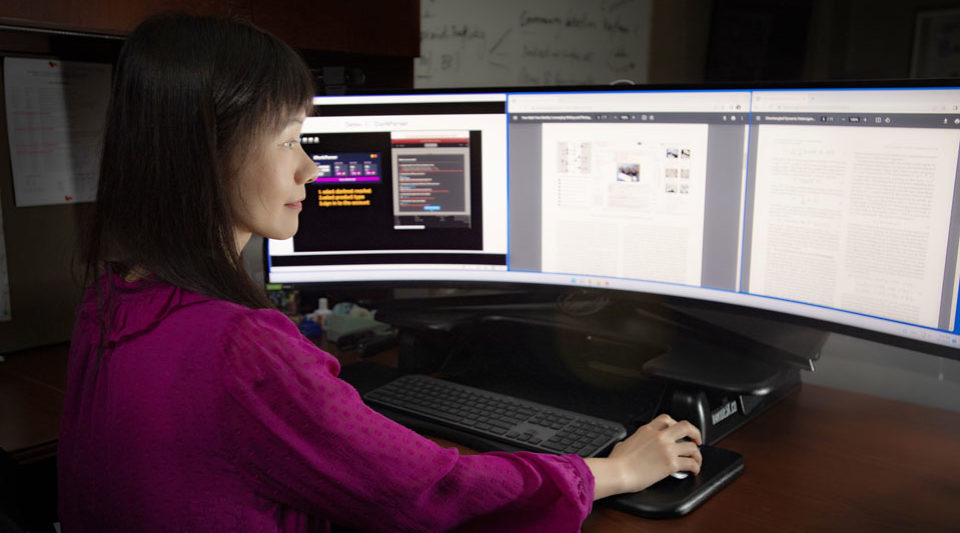Opioid abuse in the United States has reached epidemic proportions, and opioid trafficking has moved online — making it even more difficult to stop.
“Cyber criminals are always coming up with new tactics,” said Yanfang (Fanny) Ye, Collegiate Professor of Computer Science and Engineering at the University of Notre Dame.
“Illicit drug markets have evolved along with modern technology and have become particularly nimble and resilient. It’s a never-ending race to counter them.”
Ye, an expert in cybersecurity, machine learning, and artificial intelligence (AI), is using a $1 million four-year grant from the National Science Foundation to develop an AI-augmented framework for combating opioid trafficking online.
The effort is designed to help federal and state governments, public health agencies, law enforcement, and local communities detect, disrupt, and dismantle opioid trafficking networks.
Illicit drug markets are hosted in the dark web, a part of the web that regular search engines can’t access. Opioid buyers and sellers remain anonymous, using special software to conceal their identities and locations. Popular social media platforms are also used to market and sell opioids and other illicit drugs, Ye said.

To investigate these complex trafficking activities — across multiple platforms and domains — law enforcement officials must collect and analyze massive amounts of data.
Ye’s planned framework will facilitate this process by aggregating data generated from online illicit drug markets and automating its analysis. The results are expected to increase understanding of the dynamics and operations of the online opioid trafficking networks and lead to more effective prevention strategies.
Ye has extensive experience in advancing AI innovations, including to combat infectious disease outbreaks. She recently devised a novel AI-driven platform for assessing COVID-19 risk.
Complex social problems are best addressed by using a multidisciplinary approach, said Ye, who joined the Notre Dame faculty in 2021.
“Our research brings together computer and data sciences, engineering, public health, and social science,” said Ye, who is also associate director of applied analytics at the Lucy Family Institute for Data and Society at Notre Dame.
“You can only form a complete picture of the problem you’re trying to solve by bringing multiple disciplines together.”
As part of the effort, Ye and her team will integrate this research with new curricula and student mentoring to train students in interdisciplinary research methods for combatting opioid trafficking and preventing abuse. The effort also will extend to work with students K-12.
— Karla Cruise, College of Engineering
